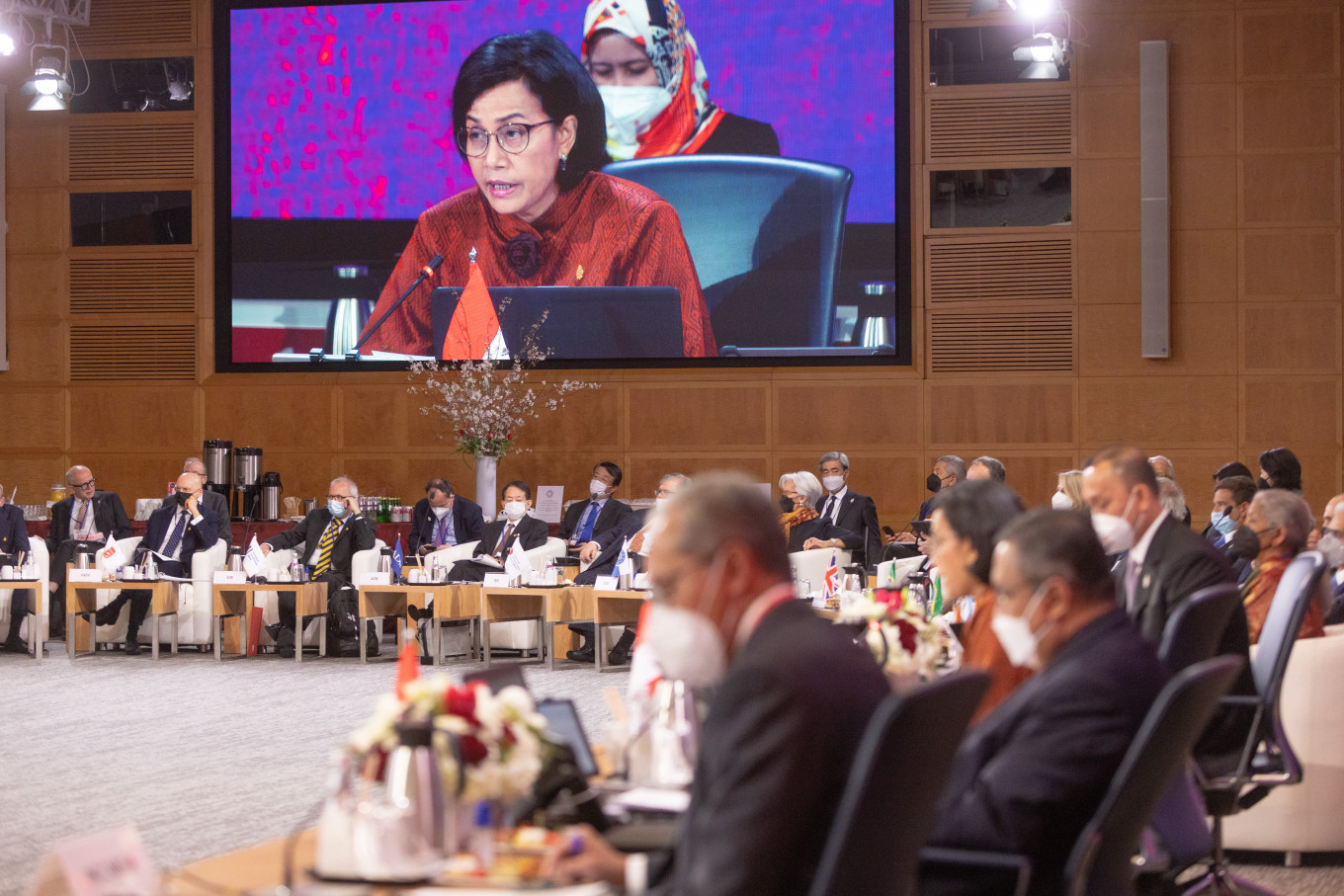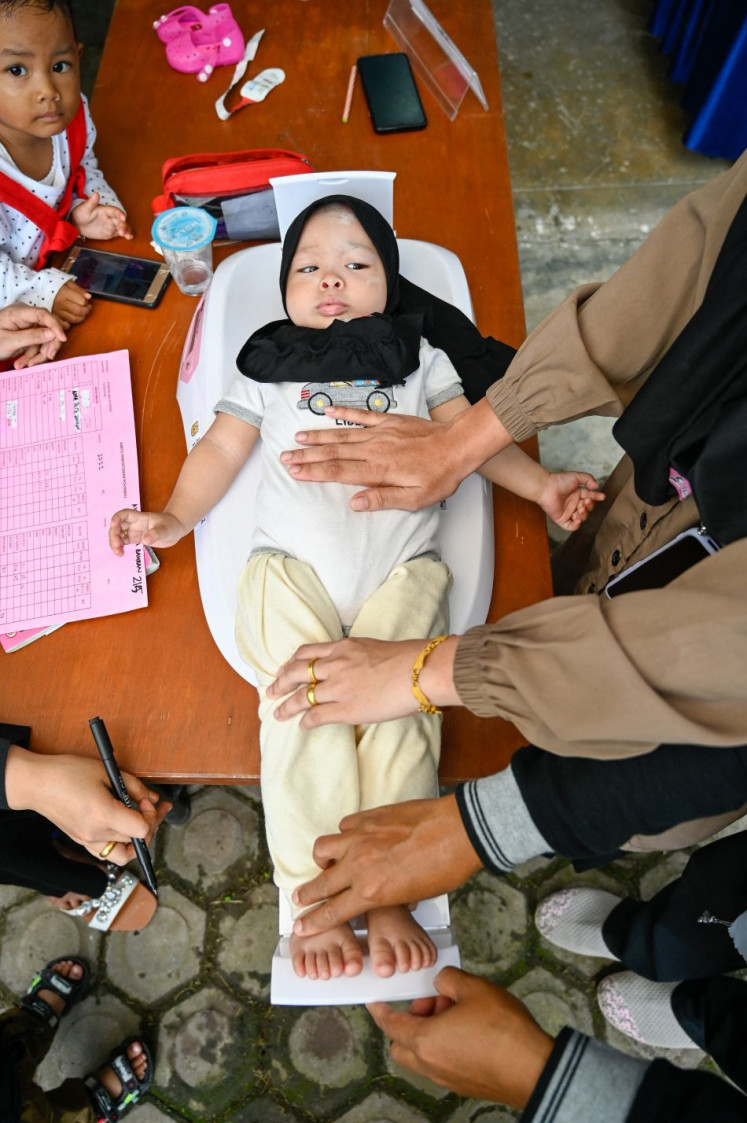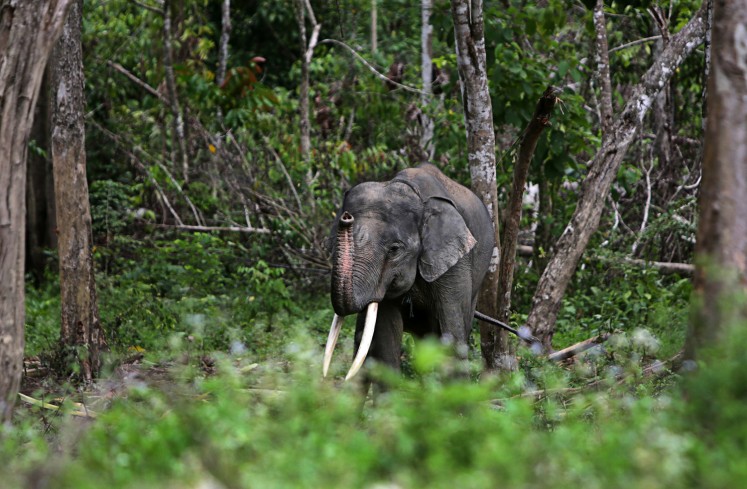Popular Reads
Top Results
Can't find what you're looking for?
View all search resultsPopular Reads
Top Results
Can't find what you're looking for?
View all search resultsIndonesia’s leadership test
Indonesia has stayed true to its neutral course at the latest G20 meeting, but the biggest challenges are yet to come.
Change text size
Gift Premium Articles
to Anyone

Indonesia appears to have navigated the first big stress test of its Group of 20 presidency with great aplomb, after officials from the United States and its allies walked out of a high-profile meeting of the economic forum on April 20.
Unperturbed by the protests against Russia’s invasion of Ukraine in Washington, Finance Minister Sri Mulyani Indrawati said she was confident the strike “will not erode cooperation or the importance of the G20 forum”.
As the meeting’s chair, she acknowledged that the Russia-Ukraine war had resulted in an “extraordinary” situation that prompted countries to support an “adaptation of the existing agenda to enable the G20 to address the economic impact of the war”. Crucially, she also secured a collective commitment to address other preexisting challenges.
However, her big pitch for multilateralism risks becoming an empty slogan if Jakarta cannot quickly mitigate the impacts of its “nationalist” policies, such as the recently announced palm oil export ban.
Ever since war broke out in Ukraine on Feb. 24, Indonesia has been trying to ensure that its G20 program will not be hijacked by global geopolitics. It has underlined the need for more cooperation – not less – to overcome the headwinds slowing global growth and recovery.
This was part of Foreign Minister Retno L.P. Marsudi’s message during her shuttle diplomacy trip to the United Kingdom, France and Turkey last week.
For its part, Indonesia has sought to maintain its neutrality in presiding over a voluntary association of nations that remains divided over what to do about Russia.
In one corner, the US and its Group of Seven (G7) allies insist on punishing Moscow with any means necessary, leading with threatening to boycott the G20 Bali summit in November. Now, they are insisting that Ukraine be invited to the summit.
For other G20 members, however, the US crusade may feel overzealous and ultimately distracting, given the forum’s busy timetable.
As for Russia’s seat at the G20 table, as its name implies, the forum’s existence hinges on the fact that 20 of the world’s largest economies decided to come together to seek global solutions. There is no precedent either to disinvite a member or to add one, and trying to reach a consensus on either is beside the point. In any case, it is Indonesia, not the G7, that must shepherd the debate and lead with creativity.
Even then, the bigger test is still to come in the months that lie ahead.
US President Joe Biden will have more to say about Russia at his meeting with ASEAN leaders next month, and it will be up to Indonesia as the liaison to the US and the holder of the G20 presidency to ensure that no one gets distracted.
Inevitably, how President Joko Widodo handles that meeting will set the tone, for better or worse, of Indonesia’s ASEAN chairmanship next year.
Jakarta also has an opportunity to direct all the negative energy over Russia’s antics to the G20 foreign ministers’ meeting in July, which is the more appropriate venue.
If it succeeds in managing these hurdles, as well as the controversy over its palm oil ban, Indonesia may come away with more political capital than it came with.











